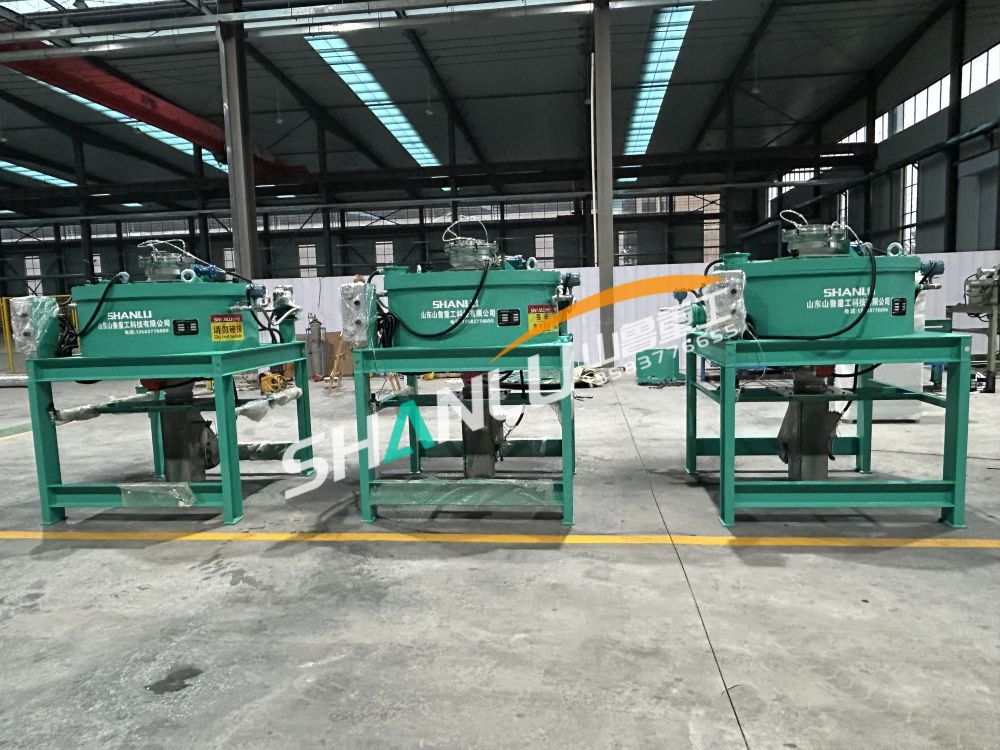The energy consumption of an electromagnetic dry powder magnetic separator
can be calculated through the following steps. The calculation of energy
consumption usually involves parameters such as equipment power, working time,
and production efficiency. Here are the detailed steps:

1. Understand the rated power of the equipment
Equipment nameplate and technical parameters
-Refer to the nameplate or technical manual of the equipment to understand
its rated power (P), usually measured in kilowatts (kW).
-Rated power refers to the power consumption of equipment under normal
operating conditions.
2. Determine the running time of the equipment
Running time (T)
-Calculate the daily operating time (hours/day) of the computing device.
-Calculate the number of operating days per year for the computing device
(days/year).
-Multiply the running time by the number of running days to obtain the total
running time of the device.
\[ T = t_{\text{daily}} \times d_{\text{yearly}} \]
Among them:
-(t_ {\ text {daily}} \) is the daily running time (in hours) of the
device.
-(d_ {\ text {yearly}} \) is the number of days the device operates each
year.
3. Annual energy consumption of computing devices
Annual energy consumption (E)
-Multiply the rated power of the device by the total operating time to
calculate the annual energy consumption.
\[ E = P \times T \]
Among them:
-(E) is the annual energy consumption of the equipment (kilowatt hours,
kWh).
-P is the rated power of the equipment (in kilowatts, kW).
-(T) is the total running time of the device (in hours, h).
4. Consider the load factor and efficiency of the equipment
Load factor (L)
-The equipment may not always operate at its rated power during actual
operation. The load factor represents the ratio of the average power to the
rated power of the equipment during actual operation, usually between 0 and
1.
\[ L = \frac{P_{\text{average}}}{P} \]
Among them:
-(P_ {\ text {average}} \) is the average power of the device (in kilowatts,
kW).
Operating efficiency (η)
-The actual efficiency of the equipment may be lower than the theoretical
efficiency, and the operating efficiency represents the ratio of actual energy
consumption to theoretical energy consumption.
\[ η = \frac{E_{\text{actual}}}{E} \]
5. Calculate the actual annual energy consumption
Actual annual energy consumption (E {\ text {actual}})
-Calculate the actual annual energy consumption of the equipment by combining
the load factor and operating efficiency.
\[ E_{\text{actual}} = E \times L \times η \]
Among them:
-(E {\ text {actual}} \) is the actual annual energy consumption of the
equipment (kilowatt hours, kWh).
-(L) is the load factor of the equipment.
-(η) is the operational efficiency of the device.
Actual Calculation Example
Assuming the technical parameters of a certain electromagnetic dry powder
magnetic separator are as follows:
-Rated power: 10 kW
-Daily running time: 8 hours
-Annual operating days: 300 days
-Load factor: 0.8
-Operating efficiency: 0.9
1. Calculate the total running time (T)
\[T=8 \ times 300=2400 \ text {hours} \]
2. Calculate the theoretical annual energy consumption (E)
\[ E = 10 \times 2400 = 24000 \text{kWh} \]
3. Calculate the actual annual energy consumption (E {\ text {actual}})
\[ E_{\text{actual}} = 24000 \times 0.8 \times 0.9 = 17280 \text{kWh} \]
conclusion
The energy consumption calculation of electromagnetic dry powder magnetic
separators involves factors such as the rated power, operating time, load
factor, and operating efficiency of the equipment. Through the above methods,
the actual energy consumption of the equipment can be effectively estimated,
providing reference for energy management and cost control.